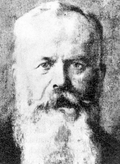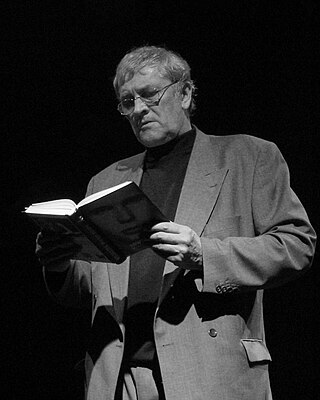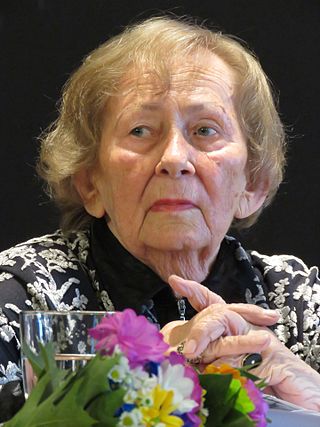
Jacek Józef Dukaj is a Polish science fiction and fantasy writer. His fiction explores such themes as alternate history, alternative physics and logic, human nature, religion, the relationship between science and power, technological singularity, artificial intelligence, and transhumanism. He is regarded among the most popular Polish contemporary science fiction authors.

Tadeusz Różewicz was a Polish poet, playwright, writer, and translator. Różewicz was in the first generation of Polish writers born after Poland regained its independence in 1918, following the century of foreign partitions. He was born in Radomsko, near Łódź, in 1921. He first published his poetry in 1938. During World War II, he served in the Polish underground Home Army. His elder brother, Janusz, also a poet, was executed by the Gestapo in 1944 for serving in the Polish resistance movement. His younger brother, Stanisław, became a noted film director and screenwriter.

Zbigniew Herbert was a Polish poet, essayist, drama writer and moralist. He is one of the best known and the most translated post-war Polish writers. While he was first published in the 1950s, soon after he voluntarily ceased submitting most of his works to official Polish government publications. He resumed publication in the 1980s, initially in the underground press. Since the 1960s, he has been nominated several times for the Nobel Prize in Literature. His books have been translated into 38 languages.

Zofia Odrowąż (1537–1580) was a Polish noblewoman.

Jacek Maria Dehnel is a Polish poet, writer, translator and painter.

The Piwnica pod Baranami is a Polish literary cabaret located in Kraków, Poland. For over thirty years, in the People's Republic of Poland, Piwnica pod Baranami served as the most renowned political cabaret in the country, until the end of the communist era. Created by Piotr Skrzynecki in 1956, the cabaret continues its activities, contrary to rumours that it has been closed after the death of its founder in 1997. It resides at its original location in the medieval Old Town district, at the Main Market Square.

Jerzy Pilch was a Polish writer, columnist, and journalist. He is the winner of the 2001 Nike Award for his novel Pod Mocnym Aniołem. Critics have compared Pilch's style to Witold Gombrowicz, Milan Kundera, or Bohumil Hrabal.

Jacek Krenz, born in 1948 in Poznań, Poland, is an academic architect and painter. He is a professor at Gdańsk University of Technology, Faculty of Architecture, taught also at University of Fine Arts in Poznań – both in Poland – and at Universidade da Beira Interior in Covilhã, Portugal. Charter member of The Polish Watercolour Society. Instructor of Urban Sketchers

Ewa Lipska, is a Polish poet from the Polish New Wave generation. Collections of her poetry have been translated into English, French, Italian, Czech, Danish, Dutch, German and Hungarian. She lives in Vienna and Kraków.

Extensa is a 2002 science fiction novel written by Jacek Dukaj, Polish science fiction writer. It is the second stand alone novels by Dukaj, and the first published by Wydawnictwo Literackie, marking the writer's growing recognition in Poland.

Lucjan Feliks Malinowski was a Polish linguist, a researcher of regional dialects of Silesia, a traveller, a professor of Jagiellonian University, from the 1887 principal Seminar Slavic languages. Malinowski studied the history of the Polish language and etymology. He was the father of anthropologist Bronisław Malinowski.

Wydawnictwo Literackie is a Kraków-based Polish publishing house, which has been referred to as one of Poland's "most respected".
Jan Brzoza, real name Józef Worobiec or Józef Wyrobiec was a Polish writer, publicist, radio-host, Communist activist and one of the founders of the proletarian literature in Poland.

Jakobe Mansztajn is a Polish poet and blogger.

Agata Tuszynska is a Polish writer, poet and journalist.

Bohdan Zadura is a Polish poet, translator and literary critic.

Małgorzata Szejnert is a Polish journalist and writer.

Urszula Kozioł is a Polish poet and writer. She is a recipient of the Silesius Poetry Award (2011) and the Nike Award (2024).

Maciej Hen is a Polish writer, translator and journalist.
PL +50. Historie przyszłości is an anthology of Polish future history science fiction texts published in 2004 by Wydawnictwo Literackie, based on the concept by its editor, Jacek Dukaj.

















